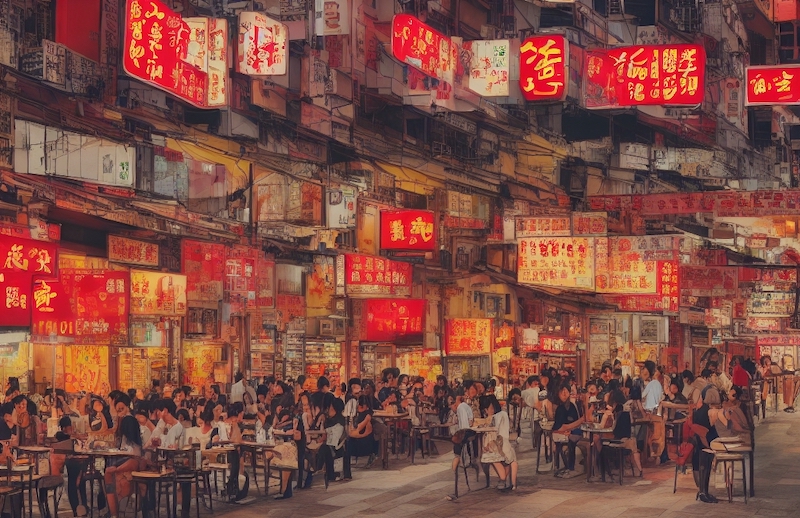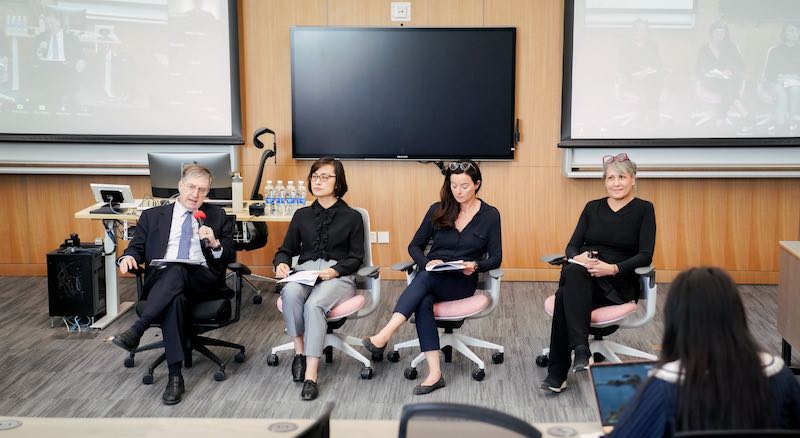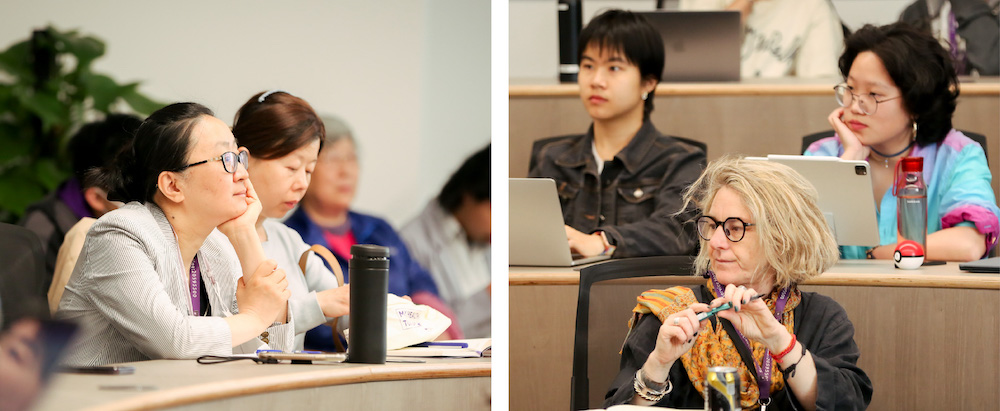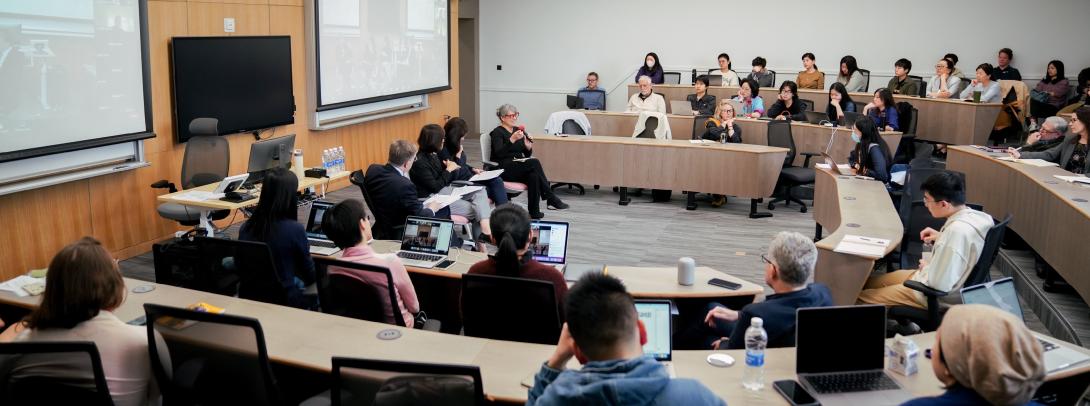These days, it seems that ChatGPT is on everyone’s lips and on our screens. The generative AI tool has garnered 100 million users within two months and is currently the fastest-growing digital product of all time. Generative AI holds a number of exciting possibilities, but are we ready for the changes that the AI Age will bring? This week the Library hosted a series of events to engage the community in discussions on how we will interact with generative AI and respond to the consequences of its popularization.
The programs included an AI art contest and exhibit on the theme of “Neo-Library,” lightning demonstrations of ChatGPT in action, and a faculty-led panel discussion. The library also launched a guide Machines and Society on how to use emerging AI technologies for research and creative purposes. The event series was curated by Dai Yun, Data Services Librarian at NYU Shanghai Library.

“Untitled Restaurant” by Joe Croskey ’23, winner of AI Art Open Call: Neo-Library People’s Choice award
During the panel discussion, NYU Shanghai faculty discussed how generative AI could impact creativity, technology, and business. Assistant Arts Professor of Visual Arts Monika Lin, Dean of Computer Science, Data Science, and Engineering Keith Ross, Associate Arts Professor of IMA Christian Grewell, Assistant Professor of IMB Jing Wang, and Associate Professor of Practice in IMB Gabrielle Chou shared their perspectives on the implications of AI and answered questions from the audience. Around 70 participants attended the event in person, while more than 100 people joined online.
Vice Chancellor Jeffrey Lehman, who moderated the panel, opened the event by highlighting the need to think more critically about new technology and how we want to interact with it. “Terms like intelligence and creativity encourage us to anthropomorphize, to think about the machines as if they were almost human,” he said. “With the arrival of the newest set of generative AI tools, our societies need to make decisions about how we want these tools to be used, what norms we want people to follow when they use them.”
Keith Ross gave an overview of the technology behind generative AI tools and explained how the language models work using mathematical algorithms. He introduced the concepts of deep learning, a fast-developing subfield of machine learning.
“You input text data into a neural network and you get text as output. The input gets processed by being multiplied by hundreds of billions of parameters. During the training phase, we adjust the parameters so that all the multiplications accomplish the desired task,” he said. “Once training is finished, the parameters are fixed and the neural network can be used to provide responses to prompts from users.”
Monika Lin raised the question of parameters and what might occur if machines set their own categories and parameters. She shared the work, “Unsupervised”, by Refik Anadol, as one work that moves into this realm. The work uses the entire metadata of MOMA’s archives – some 138,000 images to create its own complex classification system of the collection and data sets. She said such software machine learning platforms can decentralize human intervention.

Lehman raised the question of ownership and copyright. Lin emphasized that the AI generative arts ownership involves the issues of accessibility and inclusion, and questioned who can be the judge of measurement for artistic value. Jing Wang emphasized human agency in knowledge construction and analyzed content generation by AI as a human-steered process. She then called for the AI users to accept responsibility over the knowledge verification steps. “A more nuanced set of regulations will help with AI development, while still protecting the rights of human authors,” she said.
Gabrielle Chou discussed the possibility of creating generative AI new models. Whether in China or in the West, “It’s not so much a question of budget, it’s a question of access to GPU and access to data,” she said. “China faces challenges in training generative AI models due to a lack of high-quality Chinese texts available and published on the internet ” she added. “Those are fundamental to train new models.”
Christian Grewell highlighted China’s generative AI product development. “Chinese firms are already very active in this space, especially in applications,” he said, “but I think it will take some time for them to access the GPU they need, either by importing or using the existing cloud services that are available to them.”
As the panel came to a close, the question of the future direction of generative AI was raised. Keith Ross presented a vision of the future which he predicted would be similar to the film “Her,” where a human has a romantic relationship with an AI operating system. “People will develop a real human-like relationship with this ‘virtual person’.” Job loss could be a real consequence of AI, he said. His suggestion for students was to build a professional niche that requires empathy, because, in an AI Age, empathy will remain a valuable human skill.



